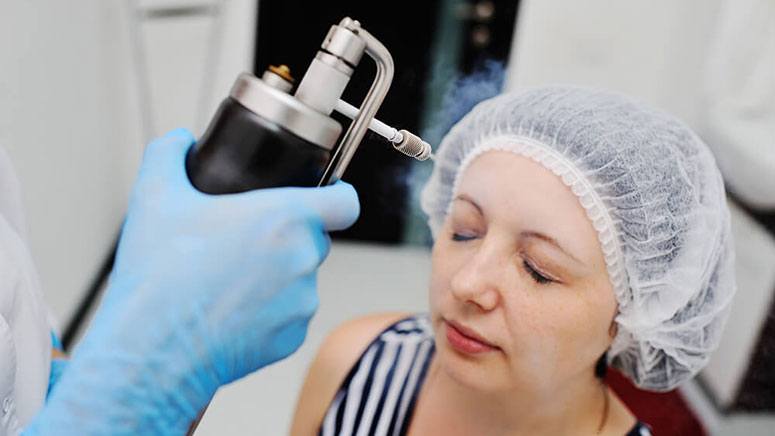Benefits and possible risks of cryosurgery

Benefits of cryosurgery include:
- It takes less time to recover from cryosurgery of the kidney or liver than the surgical removal of the tumor.
- There is usually no need to get administered after your surgery. Although your doctor may have you stay for a few hours.
- Percutaneous cryosurgery is safer and less traumatic compared to open surgery.
- Percutaneous cryosurgery costs less and has fewer side effects.
- The scar from cryosurgery is minimal and it has no apparent post-treatment calcification.
Risks of cryosurgery include:
- Common for most percutaneous procedures, you may experience bleeding from the puncture and freezing certain tissues, like the kidney, lungs, or liver.
- Cryosurgery may cause injury to surrounding organs. For example, kidney cryosurgery may cause injury to the ureter, and prostate cryosurgery may cause damage to the rectum.
- If the diaphragm freezes, fluid can accumulate in the lungs.
- The procedure can cause serious damage to the lungs if it is close to it.
- There’s a risk of nerve damage. This can happen when a nerve is completely frozen. It can cause motor weakness or numbness in the area in which the nerve supplies.
- You might experience some complications, such as anesthesia [3] as a result of the medications given.
- You must inform your doctor or x-ray [4] technologist if you are pregnant. An x-ray would be done to calculate if it is safe to conduct the surgery.
- Patients may be exposed to x-rays. Although the risk of radiation is not a serious issue, compared to the overall benefits of the procedure. Check out the safety of X-ray, Interventional Radiology and Nuclear Medicine procedures [5] to know more about the radiation effect in interventional procedures.
There are some more specific possible risks and complications from prostate cancer cryosurgery. They include:
- There can be a case of permanent impotence. This is because the nerves involving sexual potency are usually involved in the freezing process. Although, nerves can repair themselves by regenerating.
- During the procedure, a bladder tube is positioned to drain urine until the bladder neck swells. This could cause damage if not careful.
- There is a risk of urethral sloughing. This is when dead tissues block the urine stream. During the procedure, your surgeon will reduce sloughing by keeping the urethra warm with sterile water.
Your doctor will only conduct the surgery for you if the benefits outweigh the risks.













